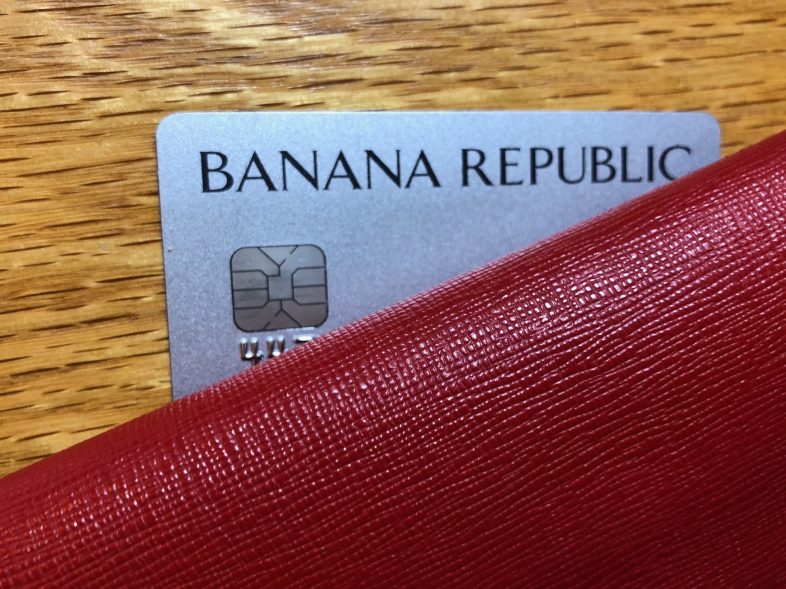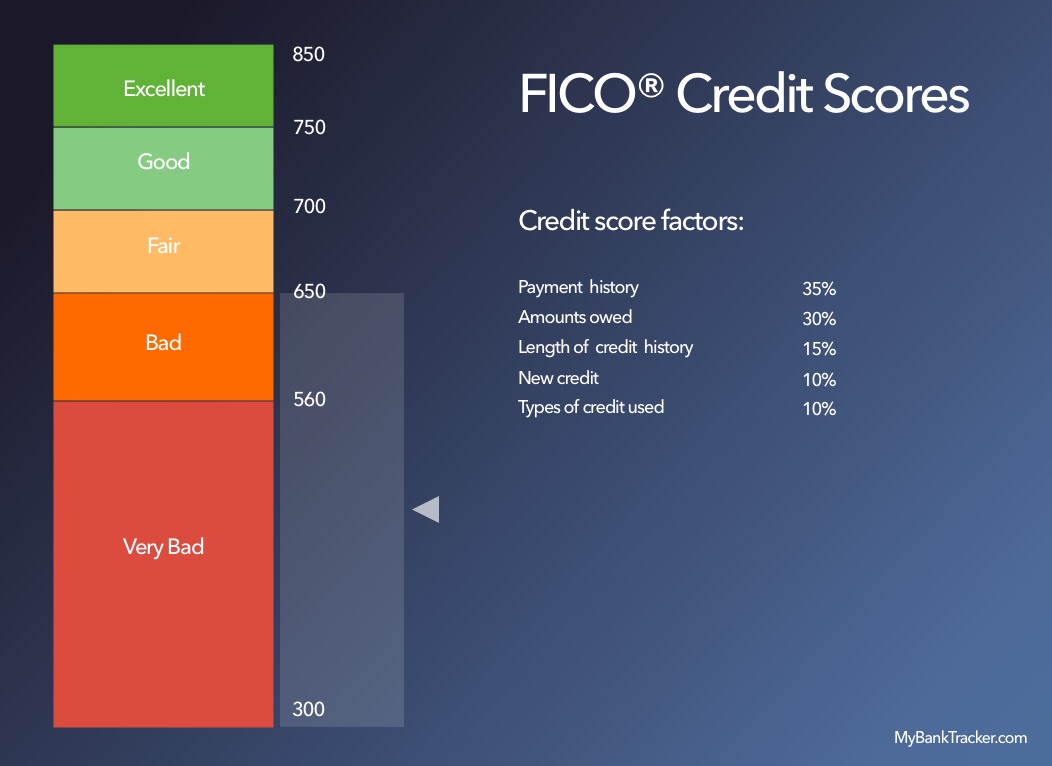Which Credit Report Does Synchrony Bank Pull?

Though you may not have heard of Synchrony Bank, there is a very good chance that you’ve interacted with the company in the past.
Synchrony Bank is a major issuer for store-branded credit cards offered by companies such as American Eagle, The Gap, Banana Republic, eBay, and Sam’s Club.
When you apply for a card from Synchrony, the lender is most likely to check your credit report from TransUnion.
In fact, Synchrony uses TransUnion nearly exclusively.
Though all three credit bureaus use your financial activities as the basis for their reports about you, there is the possibility that each bureau will have slightly different details and scores.
That’s why knowing which credit bureau will be used by a lender is important.
We learned this information by reviewing 167 consumer-reported credit inquiries from January 2015 through December 2017.
That information showed that Synchrony works with TransUnion almost exclusively.
There are some cases where Synchrony may check another bureau’s report, but those cases are exceedingly rare.
Where We Got the Data
The credit card application process isn’t particularly transparent.
Generally, you fill out an application form online or in person, and wait for a response to pop out. It often seems like you don’t have much control over the result.
Given how unclear the process is, it’s probably not a surprise that lenders don’t tell us which credit bureaus they work with.
What that means is that we gathered this information from people who applied for cards from Synchrony.
Whenever you apply for a loan of any kind, the lender is likely to check your credit report. When a credit bureau receives a request for a copy of your report from a lender, the bureau takes note of that request.
These “hard pulls” on your credit report will stay on record for two years after the date of the inquiry. Each hard pull will also reduce your credit score by a little bit.
We used CreditBoards.com to collect the majority of the data about Synchrony’s use of TransUnion report.
People use the website to gauge their chances of qualifying for certain cards. After they apply for a card, users report information like their income, credit score, the bureau that the hard pull appeared on, and whether they were approved or not.
Other borrowers can compare themselves to others on the board to see if they have a good chance of getting a card.
We use just the last three years’ worth of data to make sure we’re offering the most up-to-date info we can.
What Our Research Means to You
Our goal is to help you identify the credit report that will most affect your chances of getting a card from Synchrony.
Thanks to our research, you’ll know that your TransUnion credit report will be the one that Synchrony looks at.
Ideally, anything you do to improve your score with one bureau will likely improve it at all three. However, focusing on one, especially if there are errors, can make things easier.
How to Check Your Own Credit Reports
If you know how there are a lot of easy ways to check your credit report for free.
Our first recommendation is that you use AnnualCreditReport.com. That website is the only one that is officially sanctioned by the US government, and it doesn’t force you to sign up for any subscriptions to access your report.
Through the site, you can get one copy of your credit report from each bureau, once per calendar year, free of charge.
If you want to look at your credit reports more than once per year, you can space out your requests.
Request a copy of your TransUnion report, wait four months, then request a copy of your Experian report, wait another four months and request a copy of your Experian report. This gives you free updates on your credit every four months.
Tip: Some card issuers, like Capital One and Discover, also offer free access to your credit report as a benefit of being a cardholder.
When you do want to pull a copy of your report from AnnualCreditReport.com, use these tips.
- Enter your information accurately and double check it. Mistakes might lock you out temporarily.
- You’ll be asked verification questions. Some of these are trick questions, so don’t be afraid to answer “none of the above.”
- Save or print a copy of your report as soon as you get it, otherwise, you’ll lose it if you close the browser window.
- Consider pulling your report from a different bureau every four months. That lets you get consistent updates for free.
You can also request a report by phone by calling 1-877-322-8228 or by mail, by sending a form to:
Annual Credit Report Request Service
P.O. Box 105281
Atlanta, GA 30348-5281
Requests made by phone and mail will be mailed to you within 15 days.
Another way to get your credit report is to ask a bank for a copy after you are denied a credit card.
If you request one, lenders are legally obligated to send you a copy of the report they pulled to deny your application.
Other ways to obtain free (or discounted) credit reports
Even if you've already pulled your free TransUnion credit report for the year, there are other ways to get it again — either for free or at a reduced fee, which varies by state.
TransUnion: Free or Reduced Fee Credit Reports
| State | 1st request | Additional requests | Time frame |
|---|---|---|---|
| California | $8 | $8 | Any time |
| Colorado | Free | $8 | Calendar year |
| Connecticut | $5 | $7.50 | 12-month |
| Georgia | Free | Free | Any time |
| Maine | Free | $5 | 12-month |
| Maryland | Free | $5 | 12-month |
| Massachusetts | Free | $8 | Calendar year |
| Minnesota | $3 | $3 | Any time |
| Mississippi | Free | Free | Any time |
| Montana | $8.50 | $8.50 | Any time |
| New Jersey | Free | $8 | 12-month |
| Puerto Rico | Free | $11.50 | Calendar year |
| Vermont | Free | $7.50 | 12-month |
| Virgin Islands | $1 | $1 | Any time |
How to Make Your Credit Report Look Better
Once you’ve looked at your credit report, you can start working on a plan to improve your credit score.
After all, your credit score is based on the information in your credit report.

Use these tips to improve your chances of getting a card from Synchrony.
Fix any errors
The first thing you should do is look for errors on your credit report and fix them.
It’s more common than you’d think to find an error on your report and removing errors is one of the fastest ways to improve your credit score.
Look for payments you didn’t miss, accounts you didn’t open, and things like that.
Each bureau has different steps for fixing errors, so make sure to read up on the different procedures and follow them carefully.
Dispute delinquent accounts
If you’ve defaulted on a debt or missed payments in the past, work to remove those records from your report.
Contact your lenders and negotiate with them to set up a payment plan or to settle the debt.
Reduce debt balances
A major portion of your credit score is based on how much debt you currently have.
If you’re heavily in debt, it looks bad to lenders. Lenders mostly care about getting their money back, and lending money to someone with a lot of debt tends to look like a bad bet.
Paying down your existing debts can help you improve your score.
Raise your credit limits
Another thing that lenders look at is the percentage of your credit limits that you’re using. If you’re maxing out your credit cards, lenders are likely to think you’re in dire financial straits.
If you’re barely using any of your available credit, you can probably handle some additional debt.
You can usually request credit limit increases on your existing credit cards through the lender’s online portal.
Increasing your credit limits will reduce your credit utilization, boosting your score.
When Your Credit Report is Updated
Your credit report isn’t updated every day, so you’ll have to wait to see any changes you make reflected on your credit report.
In fact, most lenders only send information to the credit bureaus once each month, at the end of your statement period.
Ultimately, it can take several weeks for changes such as reduced balance or higher credit limits to be reflected in your credit score.
That means you need to start working to improve your credit score far in advance of applying for a loan.
Your Income and Expenses Matter Too
Don’t forget that your income and expenses can affect your chances of getting a loan just as much as your credit.
When you apply for a credit card, Synchrony is likely to ask about your annual income and monthly housing payments.
Synchrony does this because it wants to know how much money you have left over each month to make credit card payments.
Consider this example:
If you make $1,000 per month and spend $70 on housing, it’s unlikely you can pay the bills on a new credit card. If you make $8,000 a month and spend $3,000 on housing, there’s a much better chance you can make payments.
Conclusion
Applying for a credit card can be a difficult and stressful process, especially because it’s hard to know how the application process really works.
Keep these tips in mind and you can improve your chances of getting a credit card from Synchrony.

